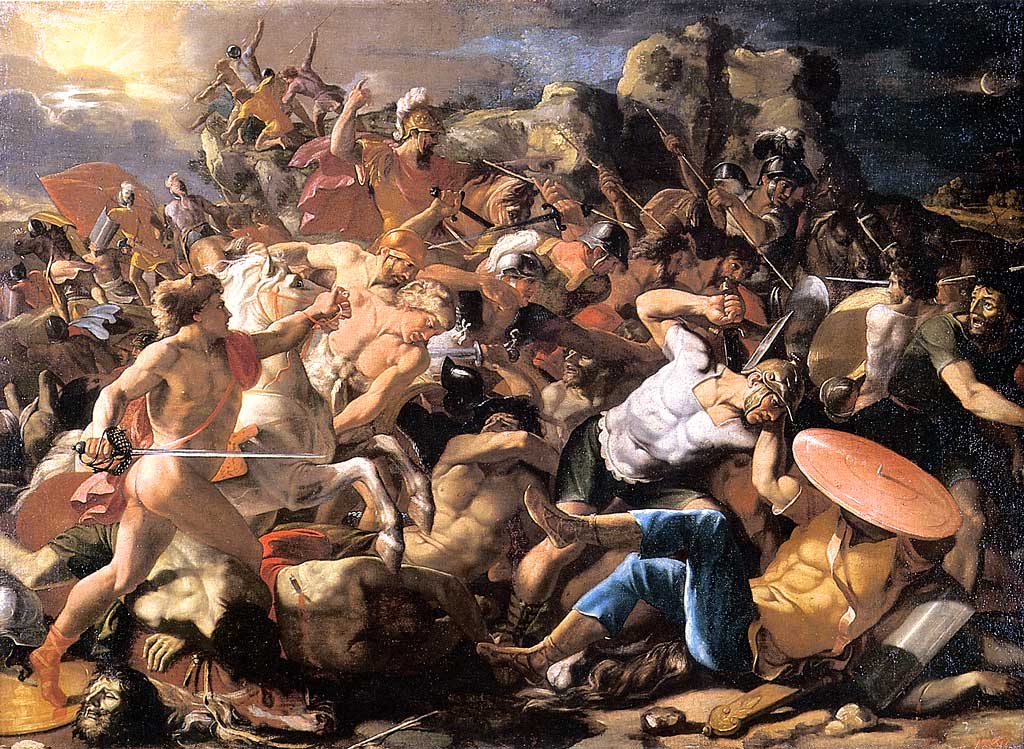Biblical prophecy is always a fascinating subject, dealing as it does with the hope of golden age, a repairing of the world, a making whole, a redemption mixed with the equal propensity for apocalyptic destruction. It predates the secular utopianism of a Sir Thomas More or Francis Bacon and appears imminently more welcoming , emancipatory and liberating than Dante’s grueling burden of utopia found in the Republic. Christopher Hitchens will will all the debates, Richard Dawkins, et al. are most convincing and articulate in challenging the validity of ancient wisdom found in the Torah; but artistically, and poetically, these modern academic Dadaists, effectively nihilists of the intellectual avant-gard fall back on their own conventions leading to an artistic backwater that is both boring and depressing: like a life sentence of reading Milan Kundera and listening to Leonard Cohen and the rather dreary and uneventful Utopia of Jonathan Swift.
The radical vibration is simply lacking, fagged out from the heavy lifting of earth required to bury such an immense figure as god. The messianistic vision, the Biblical prophets, the interpretors of the “end times” , the re-unifiers of the houses of Israel, the “ten tribers” are really the first rays of the morning sun in terms of conviction of a better world, the “in the blink of an eye” optimism that is intrinsic to messianic movements….
The call by a rabbi to have Jews take up arms against other Jews and at the same time say that Israel is on the verge of a civil war, Jew against Jew, is a page out of Bible prophecy….

---What brought Christianity to so radical an ideological upheaval? The late Rabbi Shlomo Wolbe, a leading mentor within the Orthodox Jewish community, made a convincing suggestion: the State of Israel. In his view, no theological acrobatics on the part of Christians could suffice to explain the resurgence of the Jewish people and its return to its biblical homeland. Indeed, the continued survival of the Jews has always been a thorn in the side of Christian theology. For many hundreds of years, this difficulty was dealt with by viewing the “wandering Jew” as a living example of divine retribution for the Jews’ failure to accept Christ. The miraculous survival of the Jews was therefore seen as the symbol not of an eternal covenant, but rather of eternal damnation. The State of Israel, however, has hammered a nail in the coffin of this doctrine. For not only have the Jews not vanished from the face of the earth, they have even returned to sovereignty in the Holy Land, which in turn has bloomed and flourished as in no other time since the start of the Jews’ exile two millennia ago. Could this, Christians were forced to ask themselves, really be a living example of divine damnation? We must not be naןve, of course. Had Hitler succeeded in the total annihilation of the Jewish people, Christian doctrine would not have moved one iota from its traditional position. On the contrary, Christianity’s historic repudiation of the Jews would have received divine legitimation. The ultimate survival of the Jews, coupled with the establishment (against all odds) of the State of Israel, effectively forced Christianity into its far-reaching theological concessions.---Read More:http://www.azure.org.il/article.php?id=531
. . . “Ezekiel 37:15-23 reveals a prophetic scenario that does actually call for a second Jewish state which will be titled, “Judah”. Rabbi Wolpo has already called for the Jewish people to be in place in Israel and ready to establish a second Jewish state that is, as I mentioned, called for in Bible prophecy. There will be a second Jewish state in Israel soon after the Rapture, before Jesus Christ comes back to the earth.
Rabbi Wolpo’s actions are indeed setting the stage for Bible prophecy to be fulfilled.. . ” Read More:http://raptureintheairnow.com/news-you-can-use/a-second-jewish-state-judah-happening-as-called-for-in-bible-prophecy
In the middle of all this, is the vision postulated by a Walter Benjamin and even Kafka; a cut where the profane world would be separated from the transcendent. A burst of messianic violence bringing an earthly redemption from the desire or need to enter into this idyllic kingdom in the first place. A negative messianism or even an atheist messianism where divine violence, nihilism represents not the arrival of the divine on earth but the earth’s abandonment of the divine. A messiah who comes but not showing up, or by coming only when its no longer necessary. An act not of redemption but of redemption from salvation.

---To be sure, the only Messiah recognized by the Jewish faith is he who fulfills the prophecies of gathering in all Jewish exiles, rebuilding the Temple in Jerusalem, and establishing a permanent era of peace on earth. Maimonides establishes beyond the shadow of any halachic doubt that a great Jewish leader who causes the Jewish people to reembrace their tradition and fights God's moral battles -- feats the Rebbe accomplished without rival -- has the possibility of being the Messiah. But if he dies without having fulfilled the relevant prophecies, he is seen as an inspired leader who brought the world closer to redemption, but is not the redeemer himself.---Read More:http://www.huffingtonpost.com/rabbi-shmuley-boteach/chabad-messianists-wrong-_b_82761.html
ADDENDUM:
…Yet removing faith in the messiah from the spiritual and social life of the Jewish people in recent generations has hardly left a void. The Jewish people simply transformed traditional messianism into something else. Messianism symbolizes an aspiration to wholeness and repair; when emptied of its traditional contents, nationalist sentiments proved a convenient substitute. Hence, a secular messianism developed in the form of Zionism. At a later stage, when the word “nationalism” also became uncouth, it was replaced by a type of universal messianism, otherwise known as the peace movement. The fervor accompanying this movement arguably poses a threat just as great as that of any other messianic zeal, for in it, too, ideology holds more sway than reality.









 COMMENTS
COMMENTS



